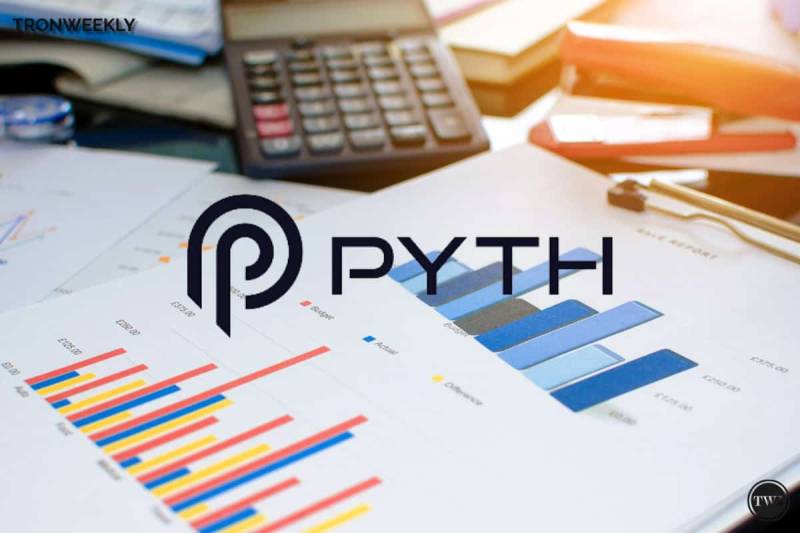 |
|
 |
|
 |
|
 |
|
 |
|
 |
|
 |
|
 |
|
 |
|
 |
|
 |
|
 |
|
 |
|
 |
|
 |
|
Cryptocurrency News Articles
Should You Buy XRP While It Trades Below $3? Here Are the Important Details
Feb 20, 2025 at 05:15 pm
Ripple is in the middle of a lengthy legal battle with the SEC. The cryptocurrency regulatory environment is increasingly favorable. XRP could disrupt the status quo in cross-border payments.

The native digital asset on the XRP Ledger, XRP (CRYPTO: XRP), peaked at around $3.30 in January after surging more than 550% following the presidential election in November. However, the token has since retraced its way to $2.55 as of Feb. 18, declining 20% from its January high, as the excitement about Donald Trump's victory has faded.
Still, XRP is the third largest cryptocurrency by market value behind Bitcoin and Ethereum, and its price could increase if more financial institutions adopt Ripple Payments. Should you buy XRP while it trades below $3? Here's what you need to know.
Ripple is in the middle of a lengthy legal battle with the SEC.
The Securities and Exchange Commission (SEC) sued Ripple in December 2020 for selling XRP tokens as unregistered securities. Specifically, the lawsuit alleged that the company raised $728 million from institutional investors and $757 million through exchanges, and that all transactions qualified as illegal securities sales.
In July 2023, a U.S. district court issued a split ruling. Judge Analisa Torres said the direct transactions with institutional investors were unlawful, but XRP transactions on digital exchanges did not violate the law. The judge ordered Ripple to pay the SEC $125 million, far less than the $2 billion the SEC wanted.
In October 2024, the SEC appealed the district court's ruling, and the agency has since submitted an opening brief, reasserting its belief that XRP sold on digital exchanges violated the law. Ripple is expected to file its opening brief by April 16, 2025.
The ongoing legal battle between the SEC and Ripple is a major headwind for XRP investors. It's unlikely that Ripple Payments will see significant adoption among banks and other payment services companies until the lawsuit is resolved.
The cryptocurrency regulatory environment is increasingly favorable.
President Donald Trump promised to support the cryptocurrency industry throughout his recent campaign, and he has taken steps to keep those promises during his first month in office. In January, he signed an executive order that created a working group tasked with evaluating the creation of a national digital asset stockpile.
Additionally, Trump nominated pro-crypto hedge fund manager Scott Bessent as Treasury Secretary. Bessent told Fox News in July "Crypto is about freedom and the crypto economy is here to stay." Trump also nominated Paul Atkins as SEC Chair. He has criticized the agency for not accommodating cryptocurrency companies under former Chairman Gary Gensler.
Importantly, while the Senate has yet to approve Atkins, the SEC has already changed tack with digital assets. In January, the agency acknowledged it had primarily used enforcement action to regulate cryptocurrency retroactively, rather than crafting clear rules up front. "The SEC can do better," the press release stated.
Also, the agency formed a cryptocurrency task force to "draw clear regulatory lines, provide realistic paths to registration, craft sensible disclosure frameworks, and deploy enforcement resources judiciously." That represents a dramatic shift from how the SEC dealt with cryptocurrency companies under Gensler.
Here's the bottom line: While none of those changes benefit XRP specifically, the more favorable regulatory environment bodes well for the cryptocurrency. It may encourage more institutional investors to buy XRP, especially if the U.S. government creates a national digital asset stockpile. And it could lead the SEC to dismiss its case against Ripple.
XRP could disrupt the status quo in cross-border payments.
Ripple's payments network uses the XRP token as a bridge currency to move money across international borders quickly and cheaply. Specifically, transactions on the XRP blockchain are generally settled within seconds, and they cost as little as a fraction of a cent.
Comparatively, transactions sent through the Swift system -- the most popular solution for cross-border payments -- can take several days to settle. And because they usually involve at least one intermediary, and each entity charges a fee, transactions are more expensive.
Ripple recently enhanced its value proposition for banks and payments companies by launching a stablecoin called Ripple USD (RLUSD). The stablecoin is tied to the U.S. dollar, making it a less volatile bridge currency than XRP. Ripple will begin using RLUSD to facilitate payments for enterprise customers this year.
Importantly, XRP supply is fixed at 100 billion tokens, so increased demand will result in price appreciation. The RLUSD stablecoin could make that happen in two ways:
• Transaction on the XRP blockchain (even those involving the stablecoin Ripple USD) incur transaction fees that are paid in XRP.
• The stablecoin may bring more DeFi (decentralized finance) developers to the blockchain, and those transactions would also incur fees in XRP.
Additionally, several asset managers have requested permission from the SEC to introduce spot XRP ETFs. Those funds would provide institutional and retail investors with a simple path to XRP exposure free from the hassle and fees associated with cryptocurrency exchanges.
Here'
Disclaimer:info@kdj.com
The information provided is not trading advice. kdj.com does not assume any responsibility for any investments made based on the information provided in this article. Cryptocurrencies are highly volatile and it is highly recommended that you invest with caution after thorough research!
If you believe that the content used on this website infringes your copyright, please contact us immediately (info@kdj.com) and we will delete it promptly.
-

- Panshibi (SHIBI) Emerges as the New Meme Coin King, Toppling Pepecoin (PEPE) and Shiba Inu (SHIB)
- Feb 21, 2025 at 11:25 pm
- Pepecoin (PEPE) is losing steam, and Shiba Inu (SHIB) is struggling to maintain its dominance as a new contender takes the spotlight. Panshibi (SHIBI) is quickly rising as the hottest meme coin, drawing in investors from PEPE and SHIB with its promising utility and explosive presale growth.
-

- Panshibi (SHIBI) Emerges as a Promising Presale Crypto Choice as Shiba Inu Cryptocurrency Loses Momentum
- Feb 21, 2025 at 11:25 pm
- Shiba Inu cryptocurrency ruled over the meme coin sector long until market trends revealed decreasing momentum. The adoption rate of Shiba Inu has hit a significant four-year low
-

-

-

-

-

- FloppyPepe ($FPPE) – The AI-Powered Content Machine Designed to Create Viral Moments and Drive Engagement Across the Crypto Space
- Feb 21, 2025 at 11:25 pm
- Going viral in such a saturated market is no easy feat, so when a project does manage to achieve this, it captures the whole crypto communities' attention.
-

- Kanye West (Ye) to Launch His Own Cryptocurrency Token Targeting Yeezy Brand Users
- Feb 21, 2025 at 11:25 pm
- A little known memecoin “YZY” experienced significant surge of over 85% within 24 hours after rumors surfaced that popular celebrity Kanye West is planning to endorse a crypto token of his own
-

- PYTH Network Receives Major Boost from Grayscale Pyth Trust Launch, But Solana's Meme Coin-Driven Market Volatility Affects Token's Price Action
- Feb 21, 2025 at 11:15 pm
- PYTH Network, a decentralized oracle network, received a major boost with the Grayscale Pyth Trust launch, a new investment vehicle offering institutional investors exposure to the PYTH token.


























































